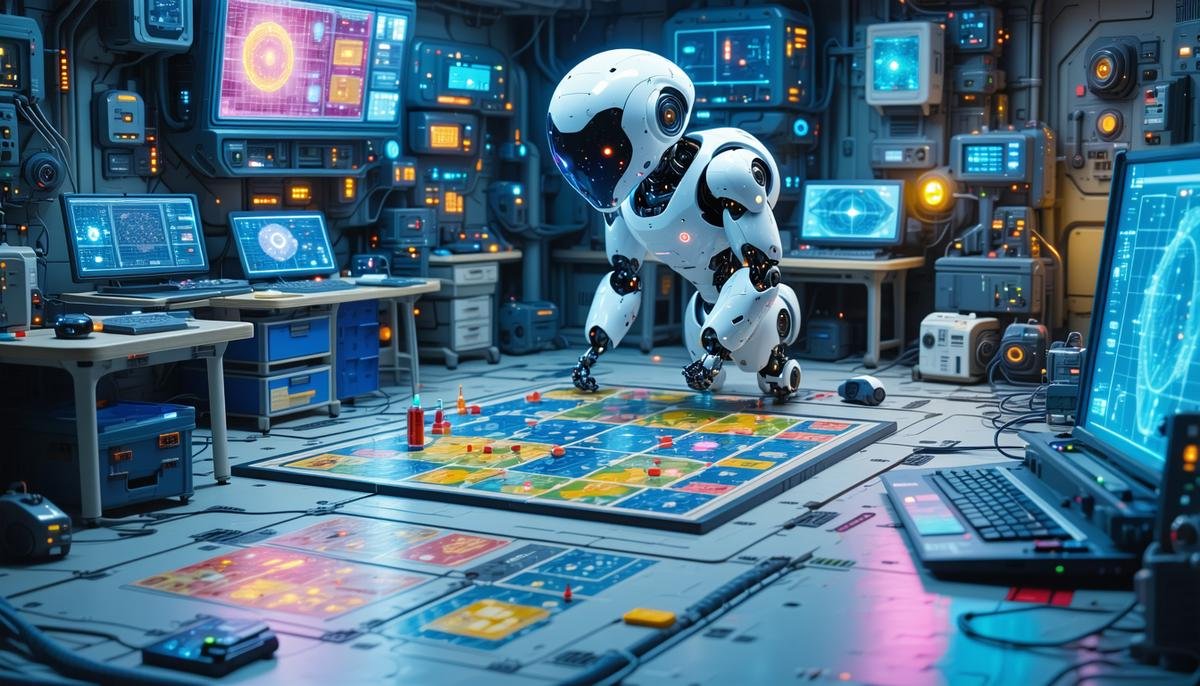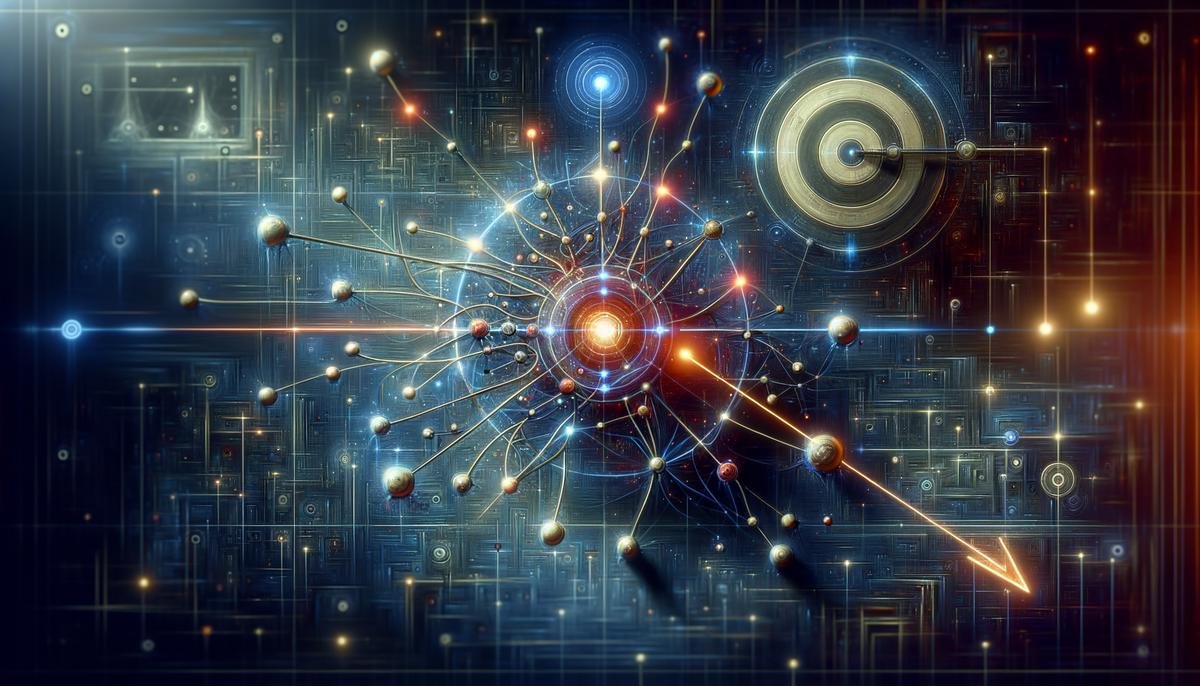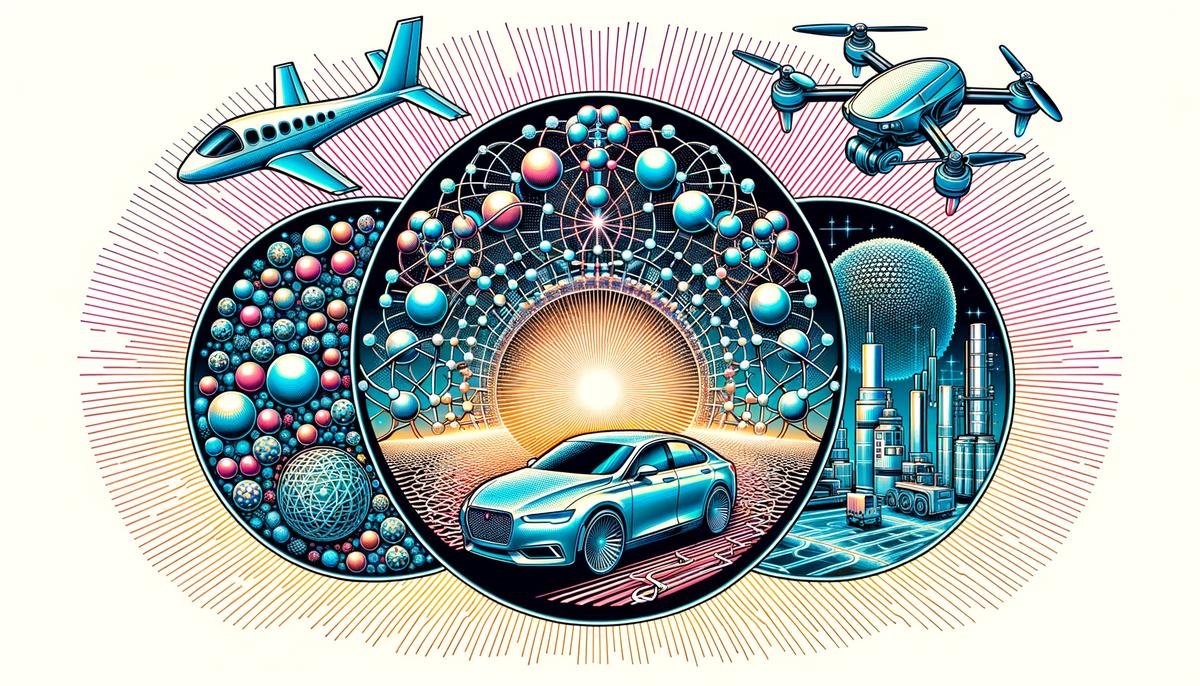Reinforcement Learning Basics
Reinforcement learning involves machines learning through experience. Machines act as agents exploring their environment, making decisions based on current states. Environmental feedback, in the form of rewards or penalties, guides the agent's future choices.
During this process, machines use a policy – the strategy for deciding their next move. DeepMind's AlphaGo project exemplifies these elements, mastering the game of Go through self-play and discovering novel strategies.
AlphaGo combines deep neural networks with reinforcement learning for superior performance. These networks handle decision-making and outcome evaluation efficiently.
The principles of reinforcement learning offer potential for various challenges beyond gaming, including:
- Medical diagnostics
- Optimizing complex systems like traffic management
- Drug discovery
- Materials science

Q-Learning and Deep Q-Networks
Q-Learning equips machine agents with Q-values, estimating the long-term benefit of taking specific actions from particular states. These Q-values update with each step, refining estimates based on rewards and predictions.
Q-Learning's advantage is its model-free nature, learning through action without needing to understand the world's hidden mechanics.
Deep Q-Networks (DQNs) enhance Q-Learning with deep neural networks, increasing robustness and flexibility. Key improvements include:
- Experience Replay: Stores past experiences for later review, increasing learning efficiency.
- Target Network: Acts as a stabilizer, providing a consistent reference for Q-value updates.
Q-Learning and DQNs enable machines to develop strategies in dynamic environments, applicable in entertainment and practical domains requiring complex decision-making.

AlphaGo's Evolution
AlphaGo's progression from its initial version to AlphaGo Zero demonstrates significant advancement in machine learning. Early AlphaGo relied on human expertise, while AlphaGo Zero began with only the basic rules of Go.
AlphaGo Zero mastered Go through self-play, uncovering patterns and strategies unfamiliar to human players. It streamlined the process with a single neural network, enhancing efficiency and capability.
This refined approach led AlphaGo Zero to surpass its predecessor, defeating it 100 games to zero.
The implications extend beyond board games, with potential applications in fields such as drug discovery and materials science.
AlphaGo's transformation suggests a future where machines learn creatively and independently, potentially surpassing human inventiveness in addressing complex challenges.

Applications of AlphaGo's Techniques
AlphaGo's innovative techniques have potential applications in various fields:
- Drug Discovery: AI could accelerate the process by predicting molecular interactions and exploring chemical possibilities.
- Materials Science: AI could simulate atomic interactions to predict new materials with unique properties, crucial for renewable energy technologies.
- Autonomous Systems: AlphaGo's learning architecture can help create advanced machine vision algorithms and decision-making protocols for self-driving cars and smart drones.
These advancements can create a cycle of innovation, with improvements in one field generating data to enhance other machine learning models. This AI evolution positions us to address major scientific questions and optimize various aspects of society.

Challenges and Future Directions
Despite progress in reinforcement learning, several challenges remain:
- Data Efficiency: Many models require extensive data to achieve proficiency, leading to high costs and lengthy training periods.
- Transfer Learning: Effectively applying acquired knowledge to new tasks remains challenging.
- Catastrophic Forgetting: AI often loses previously acquired knowledge when learning new information.
Future directions include:
- Developing approaches to enhance AI adaptability and generalization.
- Creating hybrid systems combining reinforcement learning with supervised and unsupervised learning.
- Addressing ethical aspects of developing more intelligent machines.
Balancing technical advancements with ethical considerations will be crucial in developing AI systems that complement human ingenuity.

AlphaGo's evolution from relying on human input to becoming self-sufficient demonstrates the potential of autonomous machine learning. This transformation previews a future of machine-human collaboration in addressing complex global challenges.
- Silver D, Schrittwieser J, Simonyan K, et al. Mastering the game of Go without human knowledge. Nature. 2017;550(7676):354-359.
- Hassabis D, Silver D. AlphaGo Zero: Learning from scratch. DeepMind. 2017.
- Lew-Levy S, Reckin R, Lavi N, Cristóbal-Azkarate J, Ellis-Davies K. How do hunter-gatherer children learn subsistence skills? Human Nature. 2017;28(4):367-394.
- Naveh D. Playful culture and biodiversity conservation: The Nayaka of South India. Hunter Gatherer Research. 2016;2(3):319-341.



